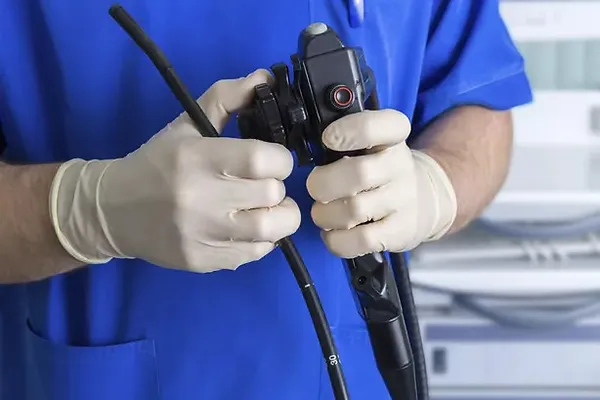Upper endoscopy lets your doctor examine the lining of the upper part of your gastrointestinal tract, which includes the esophagus, stomach and duodenum (the first portion of the small intestine). Your doctor will use a thin, flexible tube called an endoscope, which has its own lens and light source, and will view the images on a video monitor. In some cases, your provider can even take tissue samples, remove small tumors or stuck pieces of debris, stop internal bleeding, or stretch narrow areas..

Endoscopy Preparation
An empty stomach allows for the best and safest examination, so you should have nothing to eat or drink, including water, for approximately six hours before the examination. Your doctor will tell you when to start fasting as the timing can vary.
For an upper GI endoscopy, you usually do not need to drink an electrolyte solution the night before, as you would if you were having a colonoscopy.
Tell your doctor in advance about any medications you take; you might need to adjust your usual dose for the examination. Discuss any allergies to medications as well as medical conditions, such as heart or lung disease.
Talk with your doctor about if you will need sedatives for your procedure. If so you’ll need to have someone else drive you home afterward and should plan on taking the entire day off from work. If you’re a parent with small kids at home, try to arrange to have someone stay with you that day to help take care of them so you can rest.
What to Expect During an Endoscopy
Your doctor might start by spraying your throat with a local anesthetic or by giving you a sedative to help you relax. You’ll then lie on your side, and your doctor will pass the endoscope through your mouth and into the esophagus, stomach and duodenum.
The endoscope doesn’t interfere with your breathing, Most patients consider the test only slightly uncomfortable, and many patients fall asleep during the procedure.
What to Expect After a Endoscopy
You will be monitored until most of the effects of the medication have worn off. Your throat might be a little sore, and you might feel bloated because of the air introduced into your stomach during the test. You will be able to eat after you leave unless your doctor instructs you otherwise.
Your physician will explain the results of the examination to you, although you’ll probably have to wait for the results of any biopsies performed.
If you have been given sedatives during the procedure, someone must drive you to our office, stay in our office during the procedure and drive you home after your procedure. Even if you feel alert after the procedure, your judgment and reflexes could be impaired for the rest of the day.
